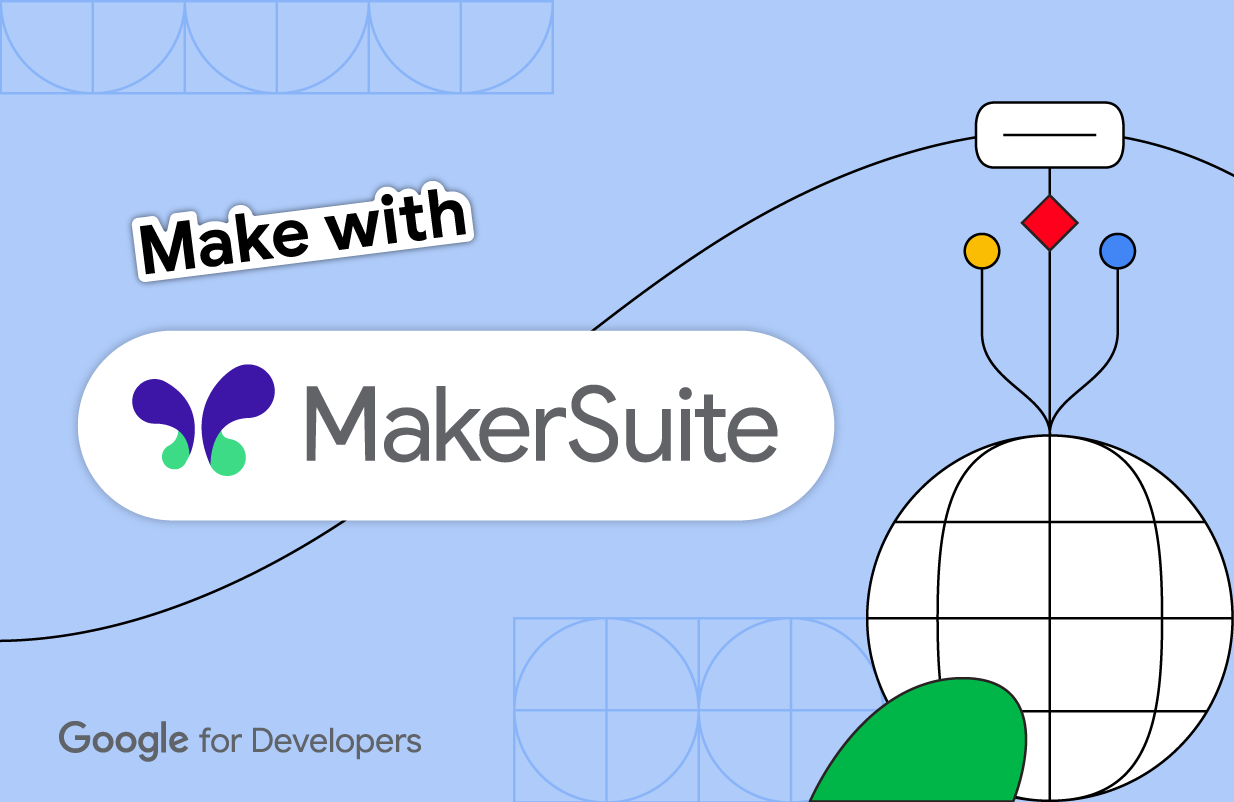
We’re always on the lookout for tools and technologies that bring innovative solutions to our developer community. Generative AI refers to the ability of machine learning models, such as Large Language Models (LLMs) trained on massive amounts of data, to learn patterns and create new content such as text, images, videos, or audio. These are still under development, but we’re already seeing how models like PaLM 2 can enhance the quality of our code to make us more productive with tools like Project IDX and Android’s Studio Bot, or help us build new innovative user experiences like Bard. It’s exciting how simple it is to interact with these powerful LLMs so we’re kicking off a 5-part series called “Make with MakerSuite” to show you how easy it is to get started.
What is MakerSuite?
MakerSuite is a fast, easy way to start building generative AI apps. It provides an efficient UI for prompting some of Google’s latest models and easily translates prompts into production-ready code you can integrate into your applications. Today, we’ve removed the waitlist so anyone in 179 countries and territories can use MakerSuite.
The art of prompting LLMs
Interacting with LLMs is as straightforward as crafting a plain language prompt, making it accessible to everyone. Prompts can be as simple as a single input, but you have the flexibility to provide additional context or examples, effectively guiding the model to produce the most optimal response. You'll observe that you can achieve different outcomes by simply tweaking the way you phrase your prompts. To harness the power of these models safely and effectively, careful crafting and iterative refining becomes essential.
Choosing the Right Prompt Type: Text, Data, or Chat?
When it comes to using MakerSuite, there are three prompt types to help you achieve your goals.
1. Text Prompts: Unleash Your Creativity
Text prompts in MakerSuite provide a flexible and freeform experience that allows you to express yourself creatively through your prompts. Whether you're a beginner or an experienced user, text prompts offer a simple way to interact with the model.

2. Data Prompts: Structured Few-Shot Prompts
Data prompts are the go-to choice when you have examples to help you specify precisely what you want from the model. They are perfect for applications that require a consistent input and output format such as data generation, translation, and more.

3. Chat Prompts: Building Conversational Experiences
If your goal is to create interactive chatbots or to simulate conversations, chat prompts are the solution! These prompts enable you to build engaging and interactive conversational experiences.

No matter which prompt type you choose, you’ll find how easy it is to use MakerSuite to prompt some of the latest models from Google to build exciting, new user experiences.
We can’t wait to see what you build
AI is fundamentally reshaping the landscape of developer work and creativity, and we’re committed to empowering our developer community with access to cutting-edge models. We believe an open and collaborative developer community fuels progress and we're thrilled to see companies like LlamaIndex and Chroma harnessing MakerSuite as building blocks for their own innovations.
You can sign up to get started with MakerSuite in 179 countries and territories.You’ll find sample prompts for inspiration or just start prompting to see what the model generates. Once you’re happy with your configuration, easily export to code from MakerSuite and start integrating into your applications, products, and services. If you prefer to prompt our models directly with the API, sign up and grab your API key from MakerSuite to start!
 Posted by Ray Thai – Product Manager, Labs
Posted by Ray Thai – Product Manager, Labs